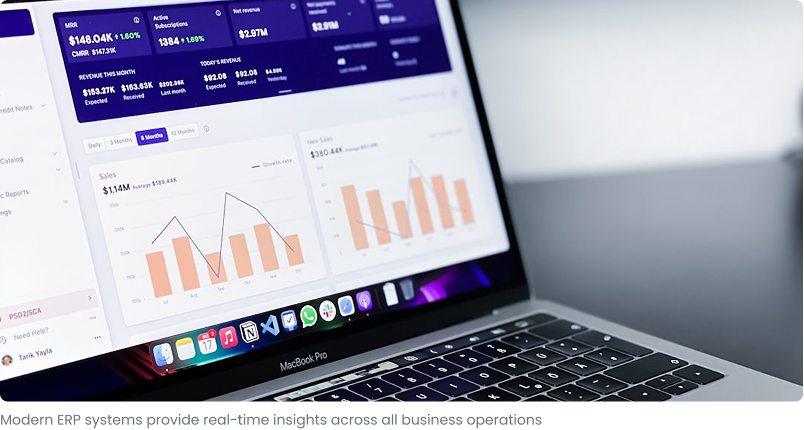Israr Ahmed
May 27, 2025 • 8 min read

Understand cloud, on-premise, and hybrid ERP deployments. Learn which setup fits your business goals, team size, and infrastructure best.
When a business decides to implement an ERP system, one of the first decisions to make is how it will be deployed. In simple terms, ERP deployment refers to where the software will be hosted and how your team will access it—whether it runs on your own company servers, through the internet (cloud), or a mix of both.
There are three main deployment types: On-Premise, Cloud-Based, and Hybrid. Let's break them down clearly.
What it means: Your ERP system is installed and managed on your company's own servers and hardware, usually at your office or a private data center.
How it works: You purchase a software license, install it on your computers, and manage everything from data backups to updates yourself or through your IT team.
Why businesses choose it:
Example: A government agency with sensitive data runs its ERP on-premise to meet strict privacy laws and avoid third-party cloud risks.
Pros:
Cons:
What it means: Your ERP system runs on the cloud servers hosted and maintained by the software provider. You access the system through the internet.
How it works: You pay a monthly or yearly subscription fee. The provider handles all the hosting, security, updates, and support.
Why businesses choose it:
Example: A growing e-commerce brand uses a cloud ERP to manage inventory, sales, and customer orders across all its online stores without worrying about IT setup.
Pros:
Cons:
What it means: A combination of both on-premise and cloud deployment. Some parts of your ERP system are hosted locally, while others run in the cloud.
How it works: For example, you might keep sensitive financial data on-site but use cloud modules for HR or customer support.
Why businesses choose it:
Example: A healthcare organization uses on-premise ERP for patient records and billing, while its mobile workforce accesses cloud HR and project tools.
Pros:
Cons:
Here are a few quick questions to guide your decision:
Do you need quick setup and access from anywhere?
→ Cloud ERP
Do you require full control over your data and systems?
→ On-Premise ERP
Want flexibility while keeping certain operations in-house?
→ Hybrid ERP
Also consider:
ERP deployment isn't one-size-fits-all. The best choice depends on your current setup and future goals.
Start simple if you need to. Many businesses today begin with cloud ERP and adapt over time. What matters most is choosing a solution that supports how your business works—and grows.
Israr Ahmed
ERP Systems Specialist at SA Systems
Israr specializes in ERP implementations and deployment strategy optimization for businesses of all sizes.
 ERP
ERPMarch 15, 2025
 ERP
ERPFebruary 28, 2025
.png) ERP
ERPJanuary 20, 2025
.png) Real Estate
Real EstateDecember 10, 2024